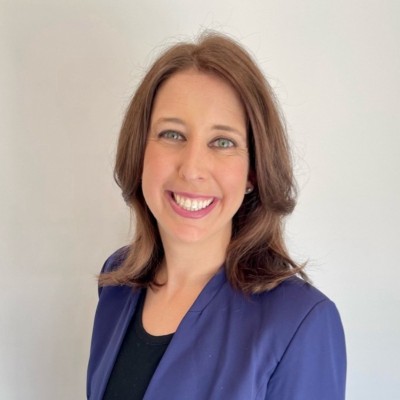Book Club: Stephan Schiffman on Sales Habits That Fuel Success
1.8K View | 20 Min Read
Olivia Fuller: Hi and welcome to Book Club, a Sales Enablement PRO podcast. I’m Olivia Fuller. Sales enablement is a constantly evolving space and we’re here to help professionals stay up to date on the latest trends and best practices so they can be more effective in their jobs.
The sales landscape is ever-changing and in many ways, that means that the knowledge and skills that salespeople need to be successful also change over time. While the specific tools or methodologies that salespeople use may evolve, the core behaviors and habits that lead to success remain timeless. Steven Schiffman is the author of over 70 books on sales best practices, including the 25 Sales Habits of Highly Successful Salespeople and Cold Calling Techniques That Really Work. I’m so excited to have Steven here to share with us so much of his knowledge and wisdom. With that, Steven, I’d love it if you could just take a second and introduce yourself to our audience.
Stephan Schiffman: First, I want to thank you for inviting me. I appreciate that. I’ve been doing this for nearly 35 years now and I’ve met with and trained over 900,000 salespeople in 9,000 different corporations, in 43 different countries. It always thrills me when I get an opportunity to talk to people more directly. It’s not just a lecture, it really is a style and a feeling about how people can do a better job, be more empowered about their jobs and win because that’s what they talk about. I’m really glad to be here today. Thank you.
OF: Fantastic. As you mentioned, you have a wealth of knowledge and you’ve been doing this for decades.
SS: Forever. You can say that. It’s been forever.
OF: You really are one of the key thought leaders in the sales space and so, what I really wanted to start to talk to you about is a lot of your books mention how some of the old-school ways of thinking about sales and some of the old traditional sales tactics were no longer working. I think this is a theme that continuously you’ve talked about throughout your books and those old tactics continue to evolve. I just love to hear from you, what are some of the key challenges that you really think reps are facing today that they have been facing over your career, and how have you seen some of those challenges continue to persist over time?
SS: The thing that kills salespeople when I say it to them, whether it’s in a lecture or written or in a training, is no one needs you. No one needs your product. I’ll tell you why I say that because nobody ever gets this at first. Let’s just pretend you’re selling pencils. You’re going to go to someone who uses pencils. I mean, you don’t go to someone who doesn’t you go to someone who does. If you think about it, they have to have a pencil already. They have to have the product you’re selling already or you wouldn’t go there. You’re not going to go to somebody who writes in chocolates, which is a ridiculous analogy, but you’re not going to go to someone who doesn’t use what you have. Therefore, if you follow this, they already have it. They’re already using it, so you as a salesperson are an agent of change. That is you have to get them to rethink what they’re doing and buy from you. Most salespeople don’t get that. They go, oh, they really need this, No, they don’t need you, they don’t need your product because they’re using it already, just not yours. That perhaps is the biggest single difference that I can tell you about sales, whether it was 30 years ago, 10 years ago, or today. Same thing.
OF: Absolutely. I think what you mentioned there around they don’t need you, so what you need to do is then build trust. I think that’s something that you talk a lot about in your books as well is really how to build that trust. One of the things that you mentioned is the importance of communication skills. I’d love to dig into that a little bit. What is your advice really around how salespeople can improve their communication with buyers, and maybe what are some of the common pitfalls that you often see in how salespeople are communicating with buyers?
SS: The easiest thing that a salesperson can do is to listen. Now having said that, everybody says that. There’s no one who says you don’t listen. Everybody says to listen. The problem is if you don’t ask the right question, the answer comes back, it’s wrong. You have to ask the right question. So what is the right question? Well, most salespeople go in and say, well, what do you need? They don’t need anything. We’ve already established that. Instead, it’s understanding what people do, how they do it when they do it, where they do it, who they’re doing it with, why they’ve chosen to do it that way, and then helping them do it better. It’s about helping people do what they do better.
In other words, it’s an improvement on what they’re doing now. If you can’t find that, if you can’t say to someone, this particular product will help you do what you’re doing better, you don’t win, because why would they buy it? Would you buy something that’s less? No. You’ve got to buy something that’s more and in fact, every product is an improvement on the other product that was developed. If you just look at the simplest thing and let’s use the telephone. I remember telephones when you picked up the phone and asked the operator to get something. I remember the phones you dialed. I remember phones that all of a sudden became wireless and hello here we are. It’s all an improvement on what we did before.
OF: I love that. I think something that you mentioned there is helping your buyers solve problems and I think that’s a term that also stood out to me in one of your books. I think you said that salespeople need to have the mindset of being professional problem solvers.
SS: Agents for change. Helping somebody get to where they are, but you see the issue is if you’re only selling yourself that is in your mind you’re going to ask questions for you, that’s so wrong. You’ve got to ask questions about them, but most people don’t know how to create a conversation. The conversation is not that easy, so people start off and they go well, what do you need? I don’t need anything. Where do they go with that? You’ve got to have a question that really opens the exploration, opens the discussion that has some validity, and doesn’t sound frankly stupid.
OF: What are some of your best practices for coaching salespeople to come up with those questions and what are some ways that you’ve helped salespeople overcome that hump?
SS: Well, interesting enough, unlike most people who do this stuff, I really give it to you very specific, like I’ll tell you here’s what you say not hey think about it. Let’s all have a big group think. I’ve done that years ago, but I’ve learned. For example, what I teach people to do when they go into a sales meeting is to start out by saying, and literally, this is the scripting, ‘Before we get started would it just help if I tell you something about me and my company?’ Now, you go ahead and do it. You say, well, we’ve been in business for so long, we do this, we do this. Now watch. You say, ‘I’m just curious, how did you end up here? How did you end up buying that product? How did that happen?’ Now you understand the process that the person went through in buying what it is you have to sell.
In other words, how did they get to that point? The phrase that I like to use is ‘I’m just curious, how did you do this? I’m just curious.’ In fact, when you and I met, I asked you, Olivia, how did you end up here, how did this happen? Your story is a great story. That’s how you start. You don’t start with, let me tell you about our product. Who cares?
OF: Absolutely. I love that. The curiosity aspect, that’s fantastic. I think something else that you’ve talked about in this is kind of along those lines is really personalization and personalizing the plans for each unique buyer. I think a lot of that comes from what we’ve been talking about around listening, but I’d love to maybe hear a little bit more about the impact that personalization can have on a sales process. So in the deal, what is the difference that personalization can make?
SS: I’m so glad you asked that because it is not a written process. Now, you know certain things about people you’re gonna go sell to. I mean you have to know something but I’ll tell you something interesting about this is that everybody’s different. Everybody has their own reasons for doing things. Nobody just on a Tuesday morning calls you up with nothing to do. That doesn’t happen that way. So to me, the most important thing is understanding what questions we want to ask and what answers we need. Here’s the key and I think this is probably the most important thing I can tell you. I never submit a proposal. Ever. For anything and I never teach it. Don’t submit a proposal. What I do instead is submit a recommendation. This is what I’m thinking about. Here are the key elements, and here’s the price by the way, but here are the key elements. Tell me what you’re thinking about that recommendation.
As soon as somebody hears about a proposal they go price, that’s all that matters. Price. I don’t want the price to be an issue. I want them to say, you know, I like this. This makes sense. There’s the keyword, this makes sense, and it makes sense because it’s a recommendation that we can work through together. It is so much different than a proposal that says slap it down here it is, buy it or not.
OF: Absolutely, building that partnership with the buyer so that you’re guiding the buyer along in the process of thinking, you know, almost that your recommendations are also their ideas in a way.
SS: It is. That is exactly right. If I come in with a recommendation and say to you, listen, I’ve thought this through, and here’s what I’m recommending we do. Now that allows the person to say yes, no, maybe gee, I like that, and all of a sudden I can take my little pen and say, you know what, let’s cross this out, let’s put this instead, let’s move this to here. Let’s change this pricing, let’s do this. All of a sudden there’s a discussion. It’s not a fight. It’s not winning. It’s a discussion where we both come away satisfied.
OF: I think that can go a long way in building a longer-term relationship rather than just a short-term transactional relationship. I’d actually love to maybe here a little bit more about that. How can salespeople kind of overcome the challenge or find a better balance between having a long-term mindset versus just thinking about the short-term deal?
SS: I was working with one of my coaching clients last night, interestingly enough, and I said to them, let’s look at this one account and they have a dollar value. I said, but isn’t there the potential for more business? They said yes, so I said why aren’t we putting that in there? In fact, you have a 50% chance of getting more business from an existing account versus 20% of getting new business. You always have to look at the bigger picture. You have to say to yourself, I’m dealing with this one account, the potential is there. The reason that I say that is if you don’t think that way, you don’t go after it again. You just say, well I’ve got a sale.
Look. Anybody can make a sale. The best example I can use is the New York City subways. You go on the subway and there was a man there years ago, probably still there, who simply stands there with a little wallet and he stands there and he says, wanna buy, wanna buy, wanna buy, wanna buy, wanna buy. That’s all he does. He shows us a little wallet and just says wanna buy, wanna buy, wanna buy. At the end of the day, somebody buys. Of course, somebody’s going to buy it. In fact, his chauffeured rose always picks him up and takes him home because he’s figured out that eventually 42 million people walk past him, and eventually someone’s going to buy. So anybody can make a sale. That’s not the issue. It’s getting the repeat sale. That’s the issue.
OF: Oh, I love that example that really puts it into perspective. Building the relationship to get the long-term business and not just eventually someone will say yes if I’m persistent enough. So that’s fantastic advice. Something else that you talked about in your books is the need to really stay up to date on the industry trends and thinking kind of at a macro level perspective as well. What are some of your best practices for staying up to date on what’s happening in the industry and thinking about how that might impact a buyer and how their needs might change over time?
SS: Again, you need to go back to the buyer and you’ve got to listen to what they’re saying. You got to listen to what the problem they’re having now. I can tell you all my problems, it’s irrelevant, what you really want to know is what they are doing and what they have changed. The issue, which is kind of interesting, I think that salespeople bring with them what’s going on in the industry. I think it’s a crime when people do not meet with salespeople and I’ll tell you why. Forget the sale, just leave the sale alone. The salesperson is going to 100, 200, 300, or 400 different accounts and they get information all the time because people talk to them. They can actually disseminate more information than almost anybody. Most people are in their offices all day, working their day without knowing what the other company is doing. So a salesperson really transmits that.
The salesperson is great. They have tremendous information but people don’t use that properly. I refuse not to meet with anybody. I will meet with anybody because they’re going to give me information. They’re going to tell me something that I don’t know and that’s really key to the whole insemination, the whole beehive effect of a salesperson.
OF: Fantastic. Well, Stephan, I just have one final question for you. We’ve talked so much about best practices for salespeople, but one person that really does play a massive role in sales success is the sales manager. I’d love to learn a little bit of your advice on how sales managers can be a great liaison between the field and sales leadership and partner with both to make sure that best practices are translated from strategy into action in the field.
SS: It’s a great question. I mean really a great question. It is a deeper question that we have time to really go into. Let me give you just a thought though. This is going to sound terrible, just terrible what I’m going to say, but I find that most corporate sales managers are really enforcers, they’re not teachers. In other words, they don’t take the time to learn how the process works, how to make a call, how to talk to somebody, what really is a prospect, and because they don’t learn that they can’t teach it to the salespeople.
Now, ultimately the salesperson is the one that we have to count on. They are the one that carries the ball, so to speak. One of the things that I see is that most sales managers, and I see with my own books. My books were not bought by sales managers. They were brought by salespeople, they were brought on by sales leaders, but the managers, and I’ve always said this to my publisher 100 times, I don’t write books for sales managers, it just doesn’t get bought, which is true. Sales managers who are really the mainstream of this really have to become much more aware of what their representatives are doing, how they work, what it is they’re trying to accomplish, and how to speak to them, so they get the results that they need. Everybody after all is working on the same team, but sales is not a team sport, that’s a real contradiction for most people. We are told to build a good sales team, but it’s not a sales sport, it really is individual.
OF: Absolutely. That’s fantastic advice for the sales manager. It is so critical, but that also requires being willing to learn and being open to partnering with both the sales leaders in the field. That is fantastic advice. Well, Stephan, thank you so much for taking the time to share all of your wisdom with our audience. I learned so much in this conversation and I again, just can’t thank you enough for taking the time.
SS: Olivia, I want to just thank you because what you’re doing is something that most people don’t do. You’re giving out really solid information. You’re helping people who I hate to say, but are in the trenches every day because they’ve got to do every day and they need that advice, they need that help, and you’re conveying that in a way, I think that they understand and that to me is admirable beyond belief.
OF: Thank you so much, I appreciate that. To our audience, thank you so much for listening. We absolutely recommend checking out all of Stephan’s books and we will include a link to a few of those here in the episode description. Thanks for listening for more insights, tips, and expertise from sales enablement leaders visit salesenablement.pro and if there’s something you’d like to share or a topic that you’d like to learn more about, please let us know. We’d love to hear from you.
Explore books by Stephan Schiffman on Amazon here.














